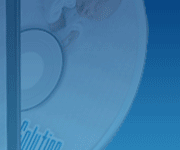
ATLANTA, Georgia (CNN) -- It's hard to believe now, but once upon a time, Michelle Duggar was a new mom. Now the Arkansas mother is famous for having 17 children, but she can still remember how her first child had a huge belly button when he was born 19 years ago.
"I was like, 'Something is wrong with my baby!' " says Duggar. "It was kind of a shock."
But Duggar's pediatrician explained that Joshua's bulging belly button was nothing to worry about. He told her it would probably go away by his second birthday, and indeed it did. That's why Duggar didn't panic when her fifth child, Jessa, was also born with what's technically called an "umbilical hernia." (
Click to see an umbilical hernia)
Huge belly buttons, acne befitting an adolescent, and swollen breasts (on boys, too!) are just a few of the surprises that sometimes await
parents. "I can get some really panicked parents," says Dr. Laura Jana, pediatrician and co-author of "Heading Home with Your Newborn: From Birth to Reality." "There are many things that look so dramatic, but actually are perfectly normal."
Here, from Jana and other pediatric authorities, are five newborn shockers that really are nothing to worry about
Baby acne
Jana says she gets lots of phone calls about baby faces full of zits, which usually happens when a baby is 3 or 4 weeks old. "Baby acne can be very dramatic and very red, and all over the face," she says.
It's also normal, harmless, and usually goes away. Baby acne occurs when hormonal changes stimulate oil glands in the baby's skin, according to the National Institutes of Health. It usually goes away on its own with a few weeks. "Parents sometimes want to wash it with soaps or astringents," says Jana, who advises them just to leave it alone. (
Click here to see baby acne)
Big baby boobs
Again, hormones are the culprit here. A baby who's been bathing in mom's hormones for nine months can sometimes come out of the womb with enlarged breasts -- even boys. (
Click here to see what they look like) Sometimes even a little milk comes out (called "witch's milk"). Both conditions go away in a few weeks and are of no concern, according to the NIH.
Crossed eyes
Jana, and her coauthor, Jennifer Shu, say parents also worry about crossed eyes. In the first six weeks of life, many babies cross their eyes. If it goes on past six weeks, call your pediatrician, advised the Children's Medical Center of Dallas, Texas.
Cradle cap
Being a parent of a newborn is stressful enough -- imagine looking down and seeing thick, scaly patches on your baby's tiny, delicate head. It's called cradle cap (
Click here to see it) and it's harmless, pediatricians say.
According to the Mayo Clinic's Web site, cradle cap usually goes away within a few months, but can look pretty unsightly in the meantime. The Mayo Clinic advises washing your baby's hair once a day with mild baby shampoo, and loosening the scales with a small soft-bristled brush before rinsing the shampoo.
Third nipple
Some parents are shocked to see their baby has a third nipple. But according to the NIH, they're actually fairly common. Small and not well formed, a third (and perhaps more) nipples can be seen below the regular two.
The NIH's Web site says no treatment is needed, and no need to worry -- the extra nipples will not develop into breasts at puberty.
So if your baby has one of these conditions and you're still worried -- even though you realize that it's probably not a big deal, call your pediatrician, advises Jana. "To be respectful, don't call at 2 in the morning. But you should call," she says.
Jana says it's normal to still be concerned after your doctor has said everything's OK.
Sharon Roth was so worried about her son Peter's huge belly button when she took him home from the hospital that she e-mailed a photo of it to her pediatrician, Dr. Lance Goodman, who was on vacation in Europe.
"He e-mailed me back saying it was fine, and I felt better," says Roth, who lives in Boca Raton, Florida.
Peter is now 6 weeks old, and even though Goodman has reassured her many times, she still feels uneasy about his belly button, which she says is the size of a large strawberry.
"Dr. Goodman told me it will go away. I hope it's soon," she says.
 Ho, ho, ho! Expecting a little extra-special gift this Christmas season? That's great! Congratulations! If you've been reading my ebooks or ezines for awhile, you know that I'm a huge proponent of singing to your unborn child. Normally I talk about singing traditional lullabies, but really, it's not so important what you sing as it is just that you sing something soft and gentle in your own voice to your own baby. I think that things like "Silent Night, ""White Christmas," or anything slow and soft and sweet is absolutely fine!
Ho, ho, ho! Expecting a little extra-special gift this Christmas season? That's great! Congratulations! If you've been reading my ebooks or ezines for awhile, you know that I'm a huge proponent of singing to your unborn child. Normally I talk about singing traditional lullabies, but really, it's not so important what you sing as it is just that you sing something soft and gentle in your own voice to your own baby. I think that things like "Silent Night, ""White Christmas," or anything slow and soft and sweet is absolutely fine! 






